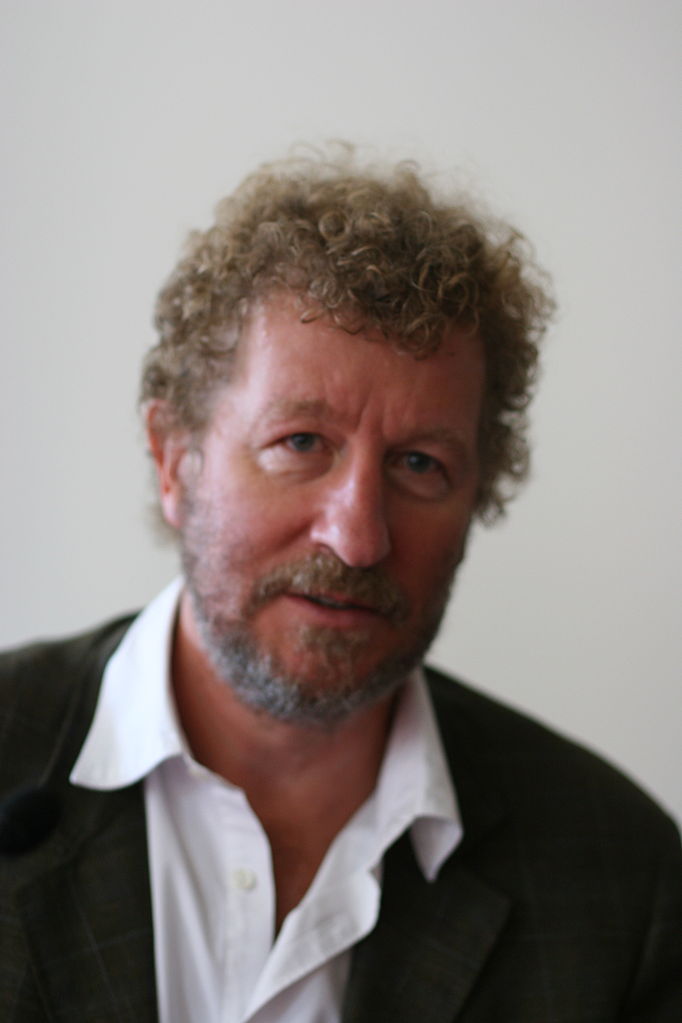
Faulks, Sebastian
Sebastian Faulks was born on 20th April 1953 in Berkshire, UK. His father, Peter, was a decorated soldier (he served in the Second World War in Duke of Wellington’s, a Yorkshire-based infantry regiment) and a circuit judge.Faulks benefited from an excellent education. He and his brother were educated at Elstree School near Reading, and, reflecting on his early education, Faulks said, ‘It was a demanding and old-fashioned school, and we both had to rise to the challenge.’ At age 17, Faulks spent three months living in Paris. Recalling this period, he said, ‘It was a lonely, intense time. I read a lot and went to galleries and films in the afternoon.’ Faulks’s time in Paris, and other visits to France, helped to shape his understanding in many of his novels. He describes himself as a Francophile, with a love of the landscape, the painting and the wine.
Faulks then studied English at the prestigious Emmanuel College in Cambridge, and upon graduating he taught at a private school in London before writing for The Daily Telegraph. Both his mother and father loved reading, and after university Faulks began to write. He reflects, ‘From the age of about fourteen, I had made up my mind. I was inspired by Dickens and D.H. Lawrence among others. I set my heart on being a novelist at that young age.’ While his parents were clearly early inspiration, Faulks also described himself as ‘lucky to have three friends of an older literary generation, David Hughes, James Michie and Gillon Aitken. Each provided encouragement in a different way.’
Faulks’s first novel, A Trick of the Light, was published in 1984. He continued to work as a journalist, and then an editor, while writing his subsequent novels The Girl at the Lion d’Or (1981) and Birdsong (1993). After the publication and success of Birdsong, which won the Franco-British Society Award, Faulks left journalism and started writing full-time. Birdsong is one of three novels by Faulks which are set in France (the others being The Girl at the Lion d’Or and Charlotte Gray). Birdsong explored the horrific experiences of Stephen Wraysford during the First World War, with a secondary storyline of his granddaughter in the 1970s researching his life. Birdsong has perhaps been Faulks’s most popular novel. In Faulks’s own words, he wrote Birdsong because, following conversations with veterans, he felt that society was missing ‘a full appreciation of the soldiers’ physical experience; and, perhaps more importantly, a philosophical understanding of what it meant to be part of the first genocidal event of the century – the one that made the others imaginable.’ Birdsong was adapted as a radio drama in 1997 and for the theatre by Rachel Wagstaff, opening at the Comedy Theatre, London, in 2010. It was also made into a television series, broadcast by the BBC in 2012.
In total, Faulks has now published 20 books, including Devil May Care, a James Bond novel commissioned for the centenary of Ian Fleming’s death. He was made a Fellow of the Royal Society of Literature in 1993 and awarded a CBE in 2002.
Faulks married Veronica, an editor at The Independent, in 1989. The couple have three children together. They spent a year living in France in 1995–1996, while Faulks was writing Charlotte Gray, but have otherwise lived in London.
© ZigZag Education 2026: content may be used by students for educational use if this page is referenced.
Show / hide details
| 20th April 1953 |
Born in Berkshire, UK
|
|
| 1960s |
Educated at Elstree School, near Reading
|
|
| 1970 |
Spent three months living in Paris, aged 17
|
|
| 1971–1974 |
Studied English at Emmanuel College, Cambridge
|
|
| 1983 |
Began writing for The Daily Telegraph
|
|
| 1984 |
Faulks’s first novel, A Trick of the Light, was published
|
|
| 1989 |
Married Veronica
|
|
| 1993 |
Third novel, Birdsong, published. Faulks left journalism and began writing full-time.
|
|
| 1993 |
Faulks was made a Fellow of the Royal Society of Literature |
|
| 1995–1996 |
Lived in France
|
|
| 2002 |
Awarded a CBE
|
|
| 2010 |
Birdsong was adapted for stage
|
Acknowledgements
https://en.wikipedia.org/wiki/Sebastian_Faulks#/media/File:Sebastian_Faulks.jpg
Sebastian Faulks, September 5, 2008
Ellena Torre
https://creativecommons.org/licenses/by-sa/2.0/deed.en
Sebastian Faulks, September 5, 2008
Ellena Torre
https://creativecommons.org/licenses/by-sa/2.0/deed.en



